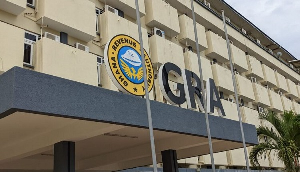Sweden strong, US lags in government ranking
Among the poorest countries in the study, Ghana scored well -- 12th of 35 in terms of limited government and 14th in terms of fundamental rights.
WASHINGTON, Oct 13, 2010 (AFP) - Sweden and the Netherlands scored high, with the United States lagging its high-income peers in a new ranking of government effectiveness Thursday called the “Rule of Law Index.”The first report by the World Justice Project ranks governments in a variety of categories such as absence of corruption, clear and stable laws, open government and access to the justice system.
The aim of the project is to advance the rule of law around the world in a manner that transcends income and cultural factors. “Establishing the rule of law is fundamental to achieving communities of opportunity and equity -- communities that offer sustainable economic development, accountable government, and respect for fundamental rights,” the report said. “Without the rule of law, medicines do not reach health facilities due to corruption; women in rural areas remain unaware of their rights; people are killed in criminal violence; and firms' costs increase because of expropriation risk. The rule of law is the cornerstone to improving public health, safeguarding participation, ensuring security, and fighting poverty.”While the report, based on a three-year study, provides no single rank for the 35 countries examined, it showed Sweden at the top in five of the nine categories -- limited government powers, clear and well-publicized laws, absence of corruption, effective regulation, and open government. The Netherlands also scored high, ranking second in five categories and third in two others. Austria was the top country for “fundamental rights,” and an effective criminal justice system while Singapore topped the list for “order and security” and access to civil justice. The United States did not top any categories but was third in open government. Most of the rankings were near the bottom of the 11 high-income nations. According to the report, which was based on 35,000 questionnaires and numerous interviews, “the findings need to be interpreted in light of certain inherent limitations.””While the index is helpful to tracking the 'temperature' of the rule of law situation in the countries under study, it is not powerful enough to provide a full diagnosis or to dictate concrete priorities for action. No single index can convey a full picture of a country's situation.”Among the seven upper middle-income nations studied, Poland topped the list in five categories including fundamental rights and effective criminal justice, while South Africa was best in four categories including open government and effective regulation. The report offered a bleak picture of Latin America, saying many countries in the region “have the highest crime rates in the world.””The high crime rates in the region may be related to the generally poor performance of the criminal investigation and adjudication systems,” it said. Mexico and Bolivia were the worst countries in terms of criminal justice. In Asia-Pacific, Japan, Australia and Singapore scored well with the Philippines and Indonesia dragged down by weak justice systems and corruption. Pakistan was near the bottom of nearly every index, and worst in fundamental rights, corruption and access to civil justice Only two Middle East nations were in the study, Morocco and Jordan. Jordan ranked 12th of 35 nations in absence of corruption but worst in terms of government transparency. Morocco was near the bottom in terms of open government and below average most other categories.
Among the poorest countries in the study, Ghana scored well -- 12th of 35 in terms of limited government and 14th in terms of fundamental rights. Kenya was worst for limited government and clear, well-publicized laws.
The project, which is advised by former US secretary of state Madeleine Albright and former Irish president Mary Robinson, among others, intends to expand its study for 2011 and 2012.












